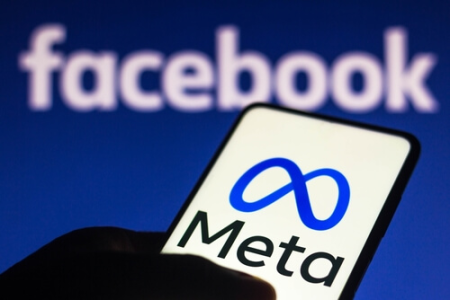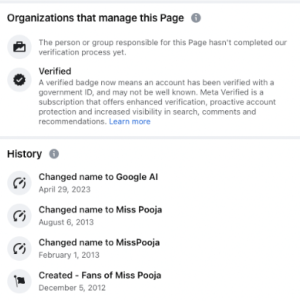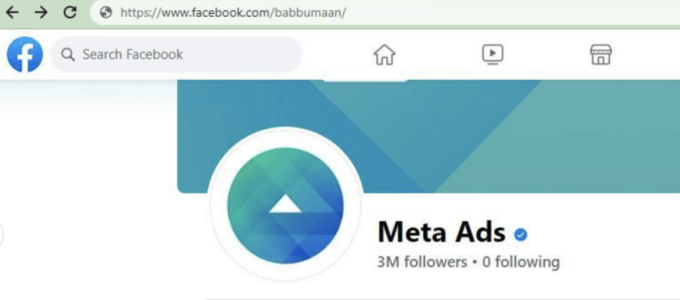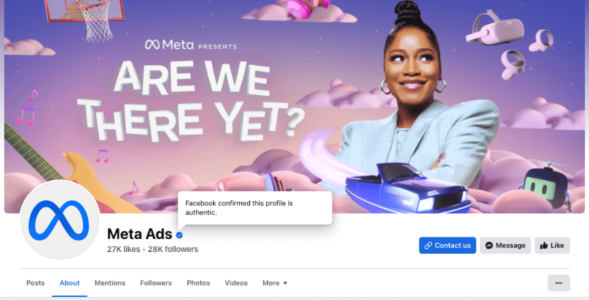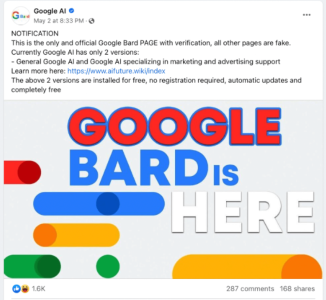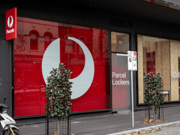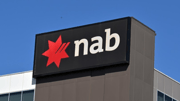Beware! Hacked Facebook pages and ads are spreading – are you at risk?
- Replies 7
At the SDC, we often speak about the importance of staying vigilant online – especially when it comes to using social media like Facebook and Instagram. We even have an entire forum dedicated to alerting the community to any new scams. You can find our Scam Watch forum here.Unfortunately, there seems to be a huge influx of false and dangerous accounts on social media platforms. Recently, a number of verified Facebook pages, complete with a blue checkmark confirming their ‘legitimacy’, were hacked by scammers and were then used to purchase ads to further spread harmful links.
This made the ads look like they were from the real deal.
Matt Navarra, a social media consultant, was the first to notice the ads and posted a warning about them on his Twitter page. The accounts in question were official-sounding entities such as 'Meta (Facebook) Ads' and 'Meta (Facebook) Ads Manager’.
One set of malicious links came from an account that had previously belonged to Indian singer and dancer Miss Pooja, who had been on Facebook for 10 years and gained over 7 million followers.
Luckily, in some ways, it's easier for hacked accounts to be detected now due to new measures that have been implemented by Facebook. For instance, the website now tracks and displays the history of name changes for a verified account – a great transparency awareness tactic to draw attention to malicious accounts.
What's even more concerning is the fact that these pages have been able to purchase ads on the platform and peddle their malicious links. This has been made possible by Meta's (Facebook) automated ad system, even though the name on the account had been changed very recently.
The pages found by the team at Mashable have since been disabled, but are Meta (Facebook) doing anything to prevent further attacks?
These incidents have prompted Meta (Facebook) to release a report on the recent upswing of AI-related malware attacks. Through these attacks, hackers entice users to download malware by posing as trustworthy AI chatbot tools like ChatGPT.
In response to the spate of malicious accounts on its platform, Meta (Facebook) said they're investing resources into 'detecting and preventing scams and hacks'.
How can you protect yourself?
Social media accounts can be easily faked or hacked for malicious purposes, often for the purpose of committing a scam. Thankfully, there are a few clues that can help users spot these impersonator accounts before it's too late.
One of the most obvious signs of a compromised or fake social media account is a name change - if you notice that an account name has been changed recently, it could be a sign of suspicious activity. Likewise, if you see posts or ads with suspicious downloads or links, be sure to report the account and avoid clicking on the links.
You should also be wary if you see an account offering deals that seem too good to be true, especially if they require you to enter your personal or financial information. While these accounts may appear to be legitimate, they could be part of a malicious phishing scam.
Finally, it's important to pay attention to any emails or notifications you may receive. Legitimate accounts that have been compromised will often prompt users to change their passwords, so keep an eye out for any suspicious emails or notifications and take action if you receive one.
Now that Meta (Facebook) has launched their new system allowing individuals to pay $15 for verification, the platform may become a more attractive target to scammers, who will have a much larger pool of potential victims.
Now, let’s put your knowledge to the test.
Can you spot which account screenshots are hacked?
1, 2, or 3?
Drum roll…
All of the screenshots are of compromised accounts. Did we trick you?
Key Takeaways
- Several fake Facebook business pages have been masquerading as companies such as Google and Meta (Facebook), with hacked verified pages being used for scam ads.
- The scam ads direct users to click fake URLs where they are brought to malicious websites impersonating Google or Facebook, and users are asked to download allegedly official software, which could potentially contain malware.
- Some hacked Facebook pages had managers added from countries unrelated to the original page owners, including Vietnam, which has been known for scammer activity.
- With Meta's (Facebook) new paid verification system, Meta Verified, the pool of potential targets for hackers may increase, potentially leading to more scams.
It's very important that you keep these scams in mind if you ever encounter a page with a blue checkmark verifying its authenticity. Even if funds have been paid out for this badge, it won't ensure that it's genuine – so do take your time to check any page thoroughly before you proceed.
By staying alert and aware of these signs, you have a better chance of avoiding and identifying fake or hacked social media accounts.
Members, it's important to stay safe online – this means being aware of what you're downloading, managing your passwords securely, and being wary of dubious accounts. That way, you can rest a little easier knowing that you're taking extra steps to protect your online security.
Have you come across any of these ads, members? We would love to hear from you in the comments below.

